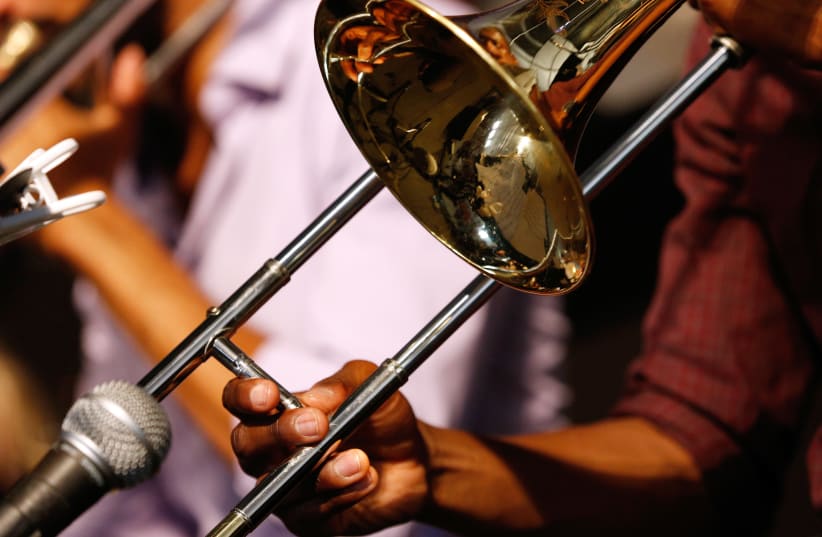"I hear "Jazz For Peace" coming through the treesAnd in my heart it fills me like a celebrationI see the light, and I want to followInspired by the past contributions of those that came beforeAnd laid the groundwork for us to build onIn this universal language that is a gift for all mankindAnd when we speak it, people are enlightenedBy the creativity and artistry that stands for peace and loveAnd humanity and intelligence that leads to reaching potentialThat we have in our soul, so we can raise our total conscienceAnd see that the gift of giving is our greatest privilegeI hear "Jazz For Peace!"
Founded by jazz pianist Rick Dellaratta, Jazz For Peace is now a program that travels to conflicts area across the world to show how it is possible to cross cultural hurdles to connect to one another in a positive way. The goal of the program is to connect these cultures together through music, specifically jazz, and bond different traditions, religions and languages to one another.Naney learned through his study of history, that jazz has a background of having a positive effect on people.Dellaratta used to spread the lore of his long term goals of conecting cultures through music many years before the attacks on 9/11. Shortly after the towers fell, however, he would start to get messages from those he spread his vision to in the past, saying things such as they remember the day when Naney told them this how one day he would connect the world through music, and he realized he this was something he had to do.Without support or funding Naney went forward with his dream of helping smalll charities, championing extraordinary causes and connecting different cultures, religions and languages within conflict areas through the power of music, before the notion of ever making a profit.Haney read his poem "Jazz for Peace" for the first time at the Savannah Jazz Festival, moving nearly all in attendence. That became the first Jazz For Peace concert.Afterwards, Haney started receiving phone calls from big name acts asking if Naney would set his poem to music so it could be performed in collaboration with the other acts in question.Shortly after the initial reading of the poem, Haney had his manager contact the United Nations in order to facilitate a benefit concert uniting Palestinians, Israelis and Americans together through his idea of music bonding cultures together.One problem, however, the press didn't show up.He was getting praise from many of the concert-goers in attendence saying how he was doing amazing and selfless deed for World Peace, however, he was disheartened by the press not finding the benefit important enough to be in attendance for.The concert happened, and people found out about it even with the lack of press coverage. The first few benefits held by the Jazz For Peace program have now culminated into the organization of hundreds of concerts worldwide, all being held in the name of coexistence between cultures.The goal of the concerts are to raise funding for small non-profit organizations and charities throughout the country and the world, who also hold the same ideas and goals of uniting cultures together, no matter the medium.They help organizations and people who have dreams that are being under funded and under promoted, and they help gain them the public forum to raise their issues on, as well as pool-in support from big name politicians like Senator John McCain and Mayor Michael Bloomberg of New York to help their causes.Jazz For Peace, in their efforts, give out grants to extraordinary causes and a platform for those who need one, from funding produced by their donors to concerts run in spirit of the vision of coexistence.Anyone who calls Jazz For Peace and has a truly profound cause that is underfunded and out of the public spotlight, JFP will put on an event to help them.
Group jazzes up coexistence through benefit concerts
Naney learned through his study of history, that jazz has a background of having a positive effect on people.
